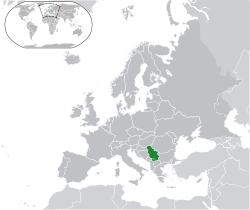Serbia To Take Axe To State-Funded Bodies
By Gordana Andric
About 130 state funded agencies, commissions and directorates will by the end of the week receive a government request to urgently submit lists of employees and their salaries.
Milivoje Mihajlovic, the government’s spokesman, said Belgrade is trying to establish which bodies are unnecessary and where it is possible to make cuts and save money.
After the government finishes its analysis, the salaries in these bodies will be limited, the number of employees will be reduced and harmonised with real needs, while some will be closed.

“Independent regulatory agencies, such as the Anticorruption Agency, will not be subjected to these cuts, but their work must be reinforced,” Mihajlovic said.
The Serbian Association of Employers, a member of Finance Ministry’s working group that is trying to establish control over public spending, conducted its own research in June.
This showed that about 130 different agencies, directorate and commissions get money from the Serbian budget.
About 95 are operating now with employees and offices, while a few dozen have offices and inventories but haven’t actually started working.
According to the Association, Serbia had only 12 such agencies back in 2008, while more than a hundred were established by the previous government led by Democratic Party.
Serbia’s current government is dominated by the Progressive Party.
“Many of those bodies are completely unnecessary and the country was functioning without them just fine. The most ridiculous example is an agency dealing with maritime shipping when Serbia is a landlocked country,” Dragoljub Rajic, from the Serbian Association of Employers, said.
Rajic says that Serbia spends about €800 million annually on these bodies, which also have other income streams.
“Many are collecting different fees from citizens and companies, so they also have their own incomes. In this way, we estimate, they earn the same amount again that they get from the budget,” Rajic added.
Serbia has the largest number of state-funded bodies in the region.
